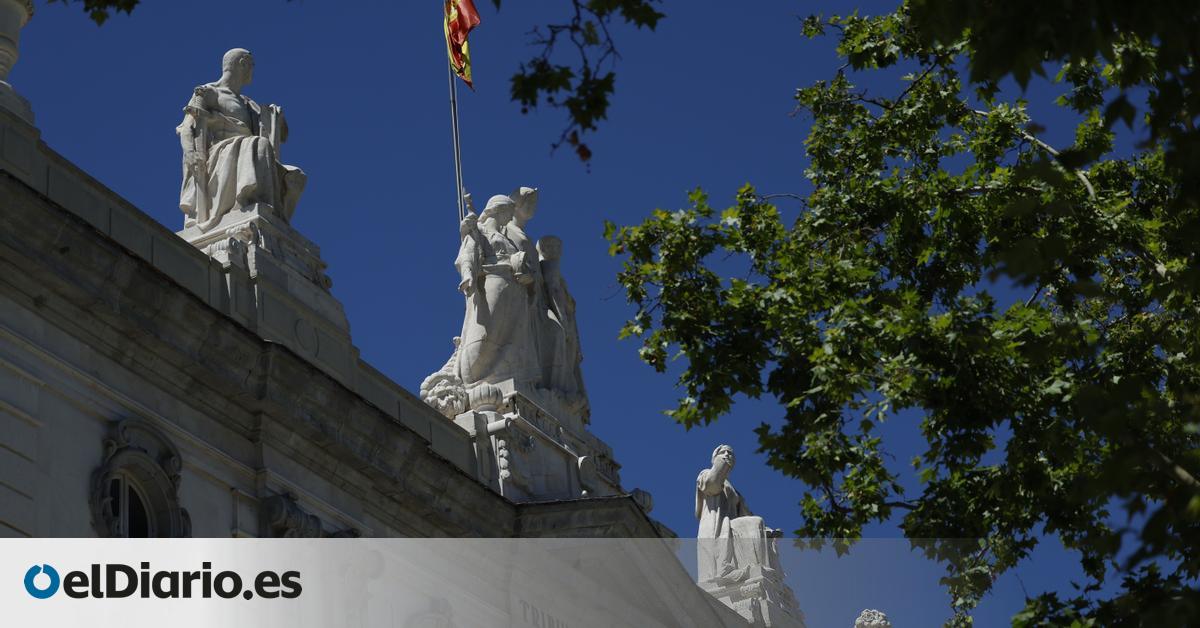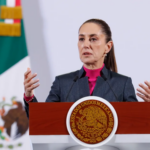
The Supreme Court has decided to take the core of the amnesty law to the Constitutional Court: its first article, which defines which crimes linked to the independence process can be pardoned by the law. The Criminal Chamber understands that this law violates both the right to equality before the law and the right to legal certainty. Referring for the first time to the secessionist challenge of 2017 as a “coup d’état”, the judges understand that the amnesty law marks a “gross discrimination” between Spaniards based on their “political opinion” and asks the Constitutional Court to revoke a law that, they claim, does not even ask those convicted and prosecuted to commit to not doing it again.
The court, made up of five judges, has raised the question of unconstitutionality after studying the case of a man sentenced to a year and a half in prison for throwing paving stones in a protest against the sentence of the procés in front of the Girona courts in 2019. The Prosecutor’s Office, states the order, had shown itself in favour of raising the question of unconstitutionality, an endorsement that does not enter into the substance of the matter but does understand that the “formal presuppositions” for raising it are given, explain sources from the Public Prosecutor’s Office.
This example of Girona, says the Supreme Court, allows them to denounce the violation of the right to equality. He would not be amnestied, the judges explain, if he had thrown the paving stones in support of the Saharawi people or protesting against an eviction. The pardon, they denounce, is based “only on his political opinion”, the support for the independence of Catalonia.
The Court cites more than a dozen academics and jurists who, through articles and interventions in the media, have denounced this unconstitutionality. From Manuel Aragón, former president of the Constitutional Court, to Jaime Lozano, magistrate who promoted a judicial guide to appeal the amnesty. Faced with this “flow of doctrinal opinions” against the amnesty, says the Supreme Court, no jurist “of certain standing”, in its opinion, defends the norm.
The question of unconstitutionality has been heard by Leopoldo Puente, who joined the Supreme Court in 2020 and did not participate in the trial of the Catalan independence process. Along with him, the document was signed by Manuel Marchena, Andrés Martínez Arrieta and Antonio del Moral, who did sentence the case, as well as Carmen Lamela, who during her time at the National Court initiated the proceedings that became the case for rebellion against the Catalan political leaders.
“We are absolutely convinced,” say these five judges, “that the law is unconstitutional, both for giving “ostensibly privileged” treatment to Catalan separatists through “gross discrimination” and also, they say, for not being suitable for achieving the objective it advocates: coexistence and leaving the process behind.
While the political leaders of the process, the Supreme Court denounces, proclaim that they would do the same thing again, the amnesty law “does not require them to make any commitment to observe the Constitution in the future.” This, they understand, does not make the amnesty suitable to achieve the objectives it advocates in terms of restoring coexistence. Regarding the impact on democratic institutions, the Supreme Court assumes that the protagonists of the process will not recover it, and asks whether the amnesty will negatively affect those who did not support the challenge of 2017: “Will they maintain their affection for democratic institutions?”
A “secessionist coup”
The amnesty law has been in force for several weeks and various courts have had to deal with its application to the various criminal offences arising from the Catalan independence process. In the case of the Supreme Court, the judges have agreed that the pardon law covers the crimes of disobedience and public disorder, present in many cases of street disturbances, but not the embezzlement attributed to, among others, Carles Puigdemont.
While the courts apply the law on a case-by-case basis, the bulk of the law is now in the hands of the Constitutional Court, which will have to issue a ruling on the substance of the law, a decision that will affect all cases that have been amnestied or are pending amnesty.
This is the first time that the Supreme Court, after sentencing Oriol Junqueras and the rest of the leaders of the independence process for sedition and not rebellion, refers to the events as a “secessionist coup d’état” and to the culprits as “coup plotters”. It does so on a dozen occasions while denouncing that they have not asked for forgiveness, “although it would be appreciated”. “It is enough that they stop throwing paving stones”, explains the Supreme Court.
The court also denounces that within the independence movement, those who did not opt for the “coup” path were attacked by those who did. “They were branded as faint-hearted, timid, “botiflers,” he laments.
Source: www.eldiario.es

